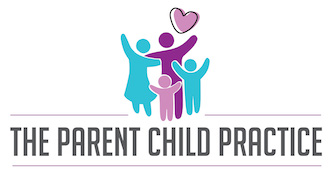Parenting is difficult. I don't think anyone will argue with that statement. A parent is given this tiny being to mold, shape and influence into someone who is (hopefully) respectful, considerate, productive and successful. There are many books about parenting; however, at the end of the day there are many aspects of parenting which are simply trial and (hopefully little) error. In order to reduce the degree of error involved in parenting, I believe that you must be purposeful about the parenting process. What kind of little person do you want to mold? What types of values do you wish to instill in your child? What are the key traits you want your child to embody? I once heard a pastor named Dennis Rouse say that parenting is like shooting an arrow -- you need to know the direction in which you plan to aim and have a specific target in mind. So where are you aiming your "arrow?" What is the target you are seeking to direct your child towards? Of course you will never know what obstacles will come and throw your "arrow" off course but to aim for your child's success you must have some purpose when parenting. So today I decided to share three (although there are many more!) things you want to avoid when parenting (i.e., you do NOT want to aim your arrow at these targets!).
1) "Do as I say, not as I do!"
I am sure that we have all heard this phrase before or perhaps you have even said this phrase to your child. However, there is a lot of evidence that this parenting tactic is ineffective and can damage your child's future. I often share with parents in therapy (and outside of therapy) that children are like sponges and they absorb everything around them -- both the good and the bad. Therefore, you only want to model the behaviors that you want your child to do. I can promise you that children will remember more of what they see you doing than what you tell them to do.
For example, parents that are overweight are more likely to have children who are overweight or parents that demonstrate violent behaviors are likely to have children that engage in similar behaviors. So if you want a child that curses, overeats, is selfish and is disrespectful then model those behaviors towards others in front of (and behind) your child and you can almost guarantee your child will show those behaviors. Remember YOU are the number one role model for how to "do life." You may believe it is television stars, athletes and musicians but don't give yourself so little credit -- your actions are very important too.
2) "Can I be your friend instead of your parent?"
I often see this phenomenon in parent-child dynamics. The parent is so concerned about their child always liking them or being perceived as the "cool and hip" parent that they forget to...PARENT! This is particularly common when children become adolescents and some parents sigh in relief due to their misconstrued belief that somehow the "mean and uncool parenting job" is over. I think it is common for all parents to want their child to love and accept them and this can occasionally lead down the slippery slope of being in the friend role instead of the parent role.
Despite the urge to become buddies with your child, it is critical that you stay their parent. You must continue to set boundaries and limits for your children. One of your primary roles as a parent is to serve as their protector and children actually thrive (I promise they really do!) when they know their parents won't let them "go out-of-bounds" in life. Do not use your past negative behaviors as an adolescent as an excuse to turn a blind eye to your own adolescent's substance use of alcohol and drugs or promiscuous behaviors. You want to avoid being a permissive parent --- one who lets everything "slide" and strive to become an authoritative parent --- one that places limits, consequences and expectations on their child's behavior.
3) "It worked for me (or it worked for the first child) how come this isn't working for him/her (the second, third, or fourth child)?"
Children are not nestle toll house cookies. They do not come in pre-cut shapes and you do not "bake" aka raise all of them the same! It would be easy for me, as a psychologist, to tell all parents the same tips and advice and say "Go forth because this will work with all children you meet henceforth!" However, life is just not that simple and neither is parenting children. Children (just like adults) are born with different temperaments and you must customize your "parenting package" based on the needs of that child. Of course, there are foundational components of parenting (e.g., love, warmth, consistency, attention, discipline, time, etc); however, the execution of those components will likely look different with every child. Therefore, it is important to remember that what worked for one (or for you) may not necessarily work for the other.
For example, some children respond better to firm boundaries while others do not seem to need as much structure for success or one child may need an excessive amount of encouragement while the other is extremely independent and confident. Take time to learn the temperament of your child and then respond accordingly to what your child needs and requires rather than doing what is easiest for you or what you feel most comfortable with. I will be honest with you --- it's not easy because you cannot just rely on your own experiences; however, when you parent focused on your child's needs first you will go a long way in the success of your child's development.



